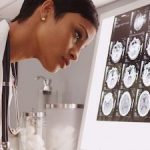WHAT IS PTSD & OTHER TRAUMATIC DISORDERS?
Trauma is an individual’s response to witnessing or experiencing a frightening event, such as a natural disaster, sexual assault, or other crime or abuse. Symptoms of trauma vary greatly by person. A person who has experienced trauma may develop depression, substance use disorder, or posttraumatic stress disorder (PTSD).
After the trauma, people with PTSD can show a significant change in behavior, mood and thoughts that can have a negative impact on daily life and last for at least one month. The greater the magnitude of the trauma, the greater the risk for PTSD.
PTSD is associated with suicidal ideation and suicide attempts, substance abuse disorders and other mood disorders such as depression and anxiety. When a person struggles with PTSD they may have difficulties in school and impaired relationships with peers and family, poor functioning in social situations and problems with physical health.
DIAGNOSIS & TREATMENT
To be diagnosed with PTSD, an adult must have symptoms for at least 1 month, and the symptoms must be severe enough to affect that person’s ability to function at work and at home. Having some symptoms of PTSD does not always mean you have PTSD. You could have another mental health condition, or you could be having a natural response in the weeks following the traumatic event.
The main treatments for post-traumatic stress disorder (PTSD) are psychological therapies and medication. Traumatic events can be very difficult to come to terms with. But confronting your feelings and seeking professional help is the recommended way of treating PTSD. It’s possible to treat PTSD many years after the traumatic event occurred. This means it’s never too late to seek help. An assessment of your symptoms will be carried out to ensure treatment is tailored to your needs.
TYPES OF TRAUMA
-
Natural disaster
-
Sexual assault
-
Military combat
-
Terrorist attacks
-
Life-threatening illness, injury, or accidents
-
Secondary trauma, such as first-responder witness of the aftermath of abuse, accidents, death
SIGNS & SYMPTOMS OF PTSD & TRAUMA DISORDERS
-
Common symptoms include:
-
re-experiencing the traumatic event over and over
-
having recurring nightmares
-
experiencing unwanted, disturbing memories of the event
-
acting or feeling as if the event is happening again
-
feeling upset when reminded of the event
-
staying away from activities, places or people that are reminders of the traumatic experience
-
avoiding friends and family
-
losing interest in activities that used to be enjoyable
-
experiencing difficulty having loving feelings
-
being unable to feel pleasure
-
constantly worrying
-
having a hard time concentrating
-
getting angry easily
-
having trouble falling asleep or staying asleep
-
fearing harm from others
-
experiencing sudden attacks of dizziness, fast heartbeat or shortness of breath
-
having fears of dying.

We're here to help when you're ready.
Want help getting started? Request Appointment
Disclaimer:
Here at Virtual Consult MD we welcome ALL individuals regardless of age, ethnicity, gender, race, religion, sexual identity or orientation, socio-economic status, and marital status. We assure you that your beliefs and lifestyle are respected. We welcome you with complete acceptance and compassion.






